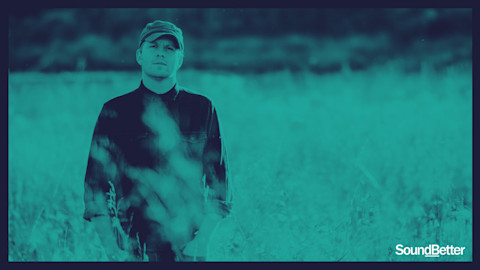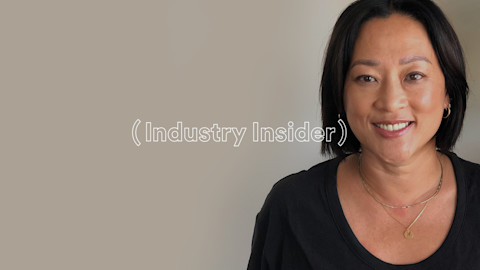Label founder Menno Versteeg opens up about why he established a special artist fund dedicated to therapy and treatment.
In recent years, conversations around mental health have been popping up all over the music industry, with an increasing array of artists—from A-list pop stars like Demi Lovato to indie-rock heroes like PUP—opening up about their experiences with addiction or depression. On the one hand, it’s an undeniably positive thing that artists are speaking so openly about their mental health struggles, diminishing the stigmas surrounding it and shedding light on the often stressful, unstable life of a touring musician. On the other hand, talking about their affliction is often the only thing they can do about it.
Touring musicians are in a perpetually tenuous position: their work is both physically and mentally demanding not to mention financially precarious, and many artists lack the resources (or knowledge of those available to them) to acquire health insurance . Even in a country with socialized health care like Canada, there are gaps in the system that require certain specialized treatments—like psychiatry—to be paid out of pocket.
For Menno Versteeg, founder of the Toronto-based imprint Royal Mountain Records, the burden that can put on artists—and the necessity of tending to their mental well-being—has been weighing on his mind for quite some time. Versteeg originally started the label in 2010 to release the debut album by his power-pop band Hollerado, and as someone who’s spent much of his adult life on the road, he’s all too familiar with the anxiety-inducing nature of touring and the lack of support available to musicians. So recently, he decided to provide a little more security for Royal Mountain’s roster. This past February, the label announced the creation of a special fund that allows its artists (which include indie luminaries like Mac DeMarco, Alvvays, and U.S. Girls) to access $1,500 annually for mental health care on a no-questions-asked basis. News of the fund, incidentally, coincided with the revelation that Hollerado’s upcoming fourth album, Retaliation Vacation, would be their last. We spoke to Versteeg about Royal Mountain’s mental health initiative, and how his own experiences fronting a band inspired it.
Spotify for Artists: In the absence of any special funding, how have you managed your own mental health over the course of your career?
Menno Versteeg: Hollerado had its difficulties. We used to beat the shit out of each other. There were numerous instances of members quitting. We didn’t actually go to therapy because we couldn’t afford it, but we had therapy sessions with our producer Gus van Go, who’s a wonderful man in terms of his perspective on life. He flew in a few times for us, and was like, “Okay, we’ve got to learn how to communicate; here are some communication tools.” He’s no certified therapist, but it was the best we could afford at the time, and man, did it ever help. So many bands are dysfunctional and they don’t communicate amongst themselves, and it festers. One person’s issues can become everyone’s issues really easily.
Hollerado really did figure it out—we’ve had the same four members for 14 years. We learned how to stay away from each other’s buttons when we needed to. And it’s gotten even better in the last few years, when some of us have been able to afford the professional therapy we’ve needed in our personal lives. I was finally able to do it and I realize therapy is not witchcraft—it really does help the band dynamic. That’s what spurred on the fund—by touring for so long and not being able to afford therapy for a long time, I saw the consequences.
So how does a label go about setting up a fund like this?
I just did it. I called our accountant and was like, “How much can we afford this year and still keep the lights on?” It comes out of the bottom line at this point. It’s a trial period—we’ll see what happens. But since doing it, there’s been a ton of really great response from sponsors who want to come on board, and private donors who’ve offered to put money toward it. And we’re going to do some fund-raising shows. Right now, when it’s coming out of the label money entirely, I’m fine administering it. But if other money is coming in from other people, we’ll need a third-party trust to administer it, because I don’t want there to be one shred of any [sponsor] saying, “Oh, the money is getting used for that?” I’ll cross those bridges when I get there. But this money is going to people who need it. Treatment comes in many, many, many forms—and some of them are not pretty.
A fund like this is a great start. But what else needs to happen in the music industry to ensure artists are properly supported?
You know, Canadians brag all the time about our amazing health care, but it only covers one part of our bodies. It doesn’t cover the other half, which is our mind. And it doesn’t cover our teeth. I know so many musician friends who for Christmas have had, like, three teeth pulled—their parents buy them dental surgery that’s way more drastic than it needed to be, because they couldn’t afford the normal filling when they needed to get it. But I feel like it’s not my place to tell anyone in the music industry how to do their thing; all I can do is do my thing, how I want to do it.
And I want to keep building this, to the point where I can get these artists an actual health plan where we can cover their teeth, and cover their rehab on their hand when they get a stress injury on their wrist on tour and it hurts them to play guitar. That’s a real thing. I’ve had it, I know so many people who’ve had it, but they can’t go to a physiotherapist for however much money. People are like, “Ah, that’s gravy, that’s extra.” And it’s like, “Yeah, but we deserve it too!”
—Stuart Berman
Popular Stories
video
How Julia Wolf Made It



